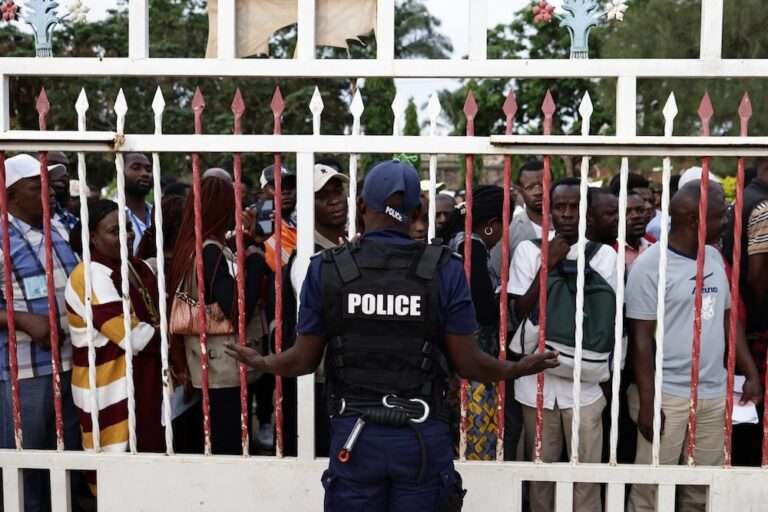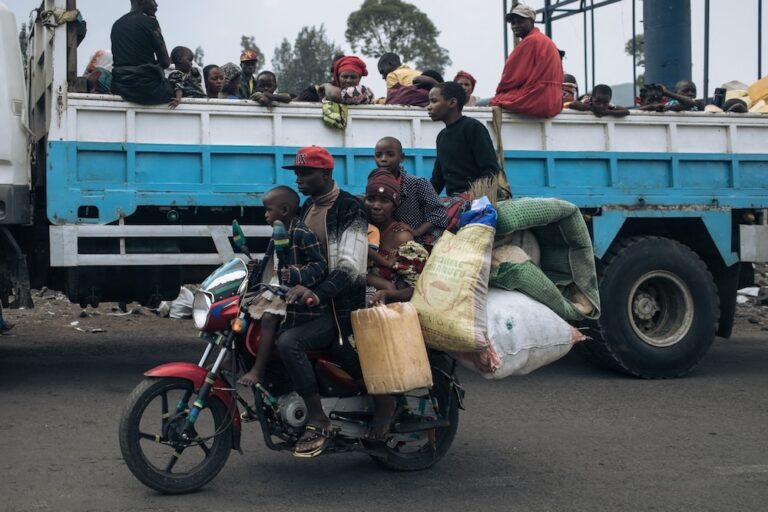Experienced French journalist Sonia Rolley is not only denied accreditation to report in the DRC, she is deported from the country without her passport and belongings.
This statement was originally published on cpj.org on 9 November 2022.
Authorities in the Democratic Republic of the Congo must reverse their decision to expel journalist Sonia Rolley and cease all efforts to intimidate the press, the Committee to Protect Journalists said Wednesday.
On the morning of Tuesday, November 8, the DRC’s immigration authorities, the Direction Générale des Migrations (DGM), summoned and expelled Rolley, a French reporter for Reuters, according to reports by Reuters and Radio France Internationale, as well as tweets by the U.N. human rights office in the DRC.
Rolley had received DGM permission to cover a climate conference in Kinshasa, the capital, in October, while she waited for a separate accreditation application for her to take up a post reporting from DRC for Reuters, according to those sources. The expulsion took place “after her application for journalistic accreditation was not approved,” Reuters said.
“The expulsion of journalist Sonia Rolley is yet another indicator of the continuing deterioration of press freedom in the DRC,” said Angela Quintal, CPJ’s Africa program coordinator, in Johannesburg, South Africa. “DRC authorities should reverse their decision to expel Rolley and cease all acts of intimidation against the press.”
According to those sources, DGM officials seized Rolley’s passport when she arrived at their Kinshasa office in response to their summons; she was then taken to the airport and put on a plane to Paris, via Addis Ababa, without her other belongings. A person with knowledge of the case who spoke to CPJ on the condition of anonymity due to privacy concerns said the passport was returned to the journalist in Paris.
Today, Rolley posted on Twitter expressing gratitude for messages of support.
Reuters said in a statement: “We are offering Sonia Rolley assistance and urgently seeking information from the Congolese authorities,” adding that “Reuters will continue to report from Congo in an independent and impartial way, as we do around the world.”
According to local outlet mediacongo.net, the DGM alleged she did not have the correct visa to remain in the country. In a statement posted to Twitter, the Ministry of Communication said the decision to expel the journalist had nothing to do with freedom of the press but was an administrative decision.
CPJ’s calls to Patrick Muyaya, the DRC’s minister of communication, who manages media accreditation, and to Roland Kashwantale, the general administrator of the DGM, rang unanswered.
Rolley previously worked for French broadcaster Radio France Internationale, during which time she extensively covered politics, conflict, human rights, and corruption in the DRC. In 2021, her work included the so-called Congo Hold-up investigation, which revealed DRC elites’ alleged embezzlement of public funds.
CPJ has documented repeated attacks and threats against journalists in the DRC in recent months. Local press freedom group Journaliste En Danger published a report in early November citing “thinly veiled threats against the independent press” by the country’s military and a “reduction in the validity of accreditations, which must be renewed every six months.”



